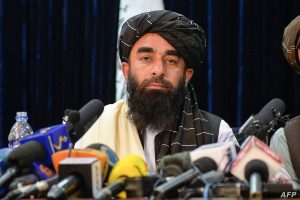
Staff Writer
The ‘Rahbari Shoura’ is the main body tasked with governing the Taliban as a movement, as stipulated in a 2010 ‘Layeha’ document, which also stipulates the group’s code of conduct. During the years of its leaders having been exiled in Pakistan, the council was sometimes referred to as the Quetta Shoura. The Shoura has between 25 and 30 members, which, prior to September 2021, included a shadow government, with military zone commanders, governors and even judicial adjudicators. Many of the members comprising the structure now form part of the current government, including Mullah Mohammad Hassan Akhund, the country’s Prime Minister, and Sirajudine Haqqani, who is now the interior minister and has a military commander level position in the Shoura. Akhund was also previously governor of the Taliban’s Kandahar stronghold and was a former foreign minister during the 1990s, prior to the US invasion. It does however seem as if the political and religious component of the Shoura have been empowered, especially since they hold most positions in the now 33-member interim Afghan government. However, Haibatullah Akhundzada, the group’s supreme leader, does not hold any official government position. Akhundzada will likely remain in a spiritual hierarchical position, which will also indicate that he is not tainted by the trappings of government.
Speaking to Radio Islam International, Murat Sofuoglu, a writer for the Turkish TRT World news outlet, noted the fact that almost all of the interim ministers sit on the council, including Akhund, Haqqani and Mulla Abdul Ghani Baradar, and that the council, just like the current government is predominately Pashtun; around 30 of the 33-member interim government are Pashtun. Further, he noted the lack of technocrats present in the government, especially since running a government is very different to running a successful so-called insurgency. It does, however, need to be noted that the group had already been running a parallel judicial structure, which, according to many provided, swifter justice than both the Afghan courts’ system and the Jirga system.
Many have also noted that the Taliban is not monolithic, and that there was likely bargaining in the formation of the government, with coherence prioritised over competence. Further, some have argued that Pakistan was influential in the fact that Akhund was named Prime Minister, since Baradar, who seemed the popular choice, is not as sympathetic as Akhund. It is also noteworthy that the Rahbari Shoura is largely a result of appointment than election, with Akhundzada being the ultimate arbitrator.
With only a month since the recapture of Afghanistan, little time for actual governance has passed. While security has been improved, international institutions and global governments seem unlikely to release the funds required to stabilise and sustain the country’s economy. This is expected to prove the most difficult task for the new Taliban Government.







0 Comments